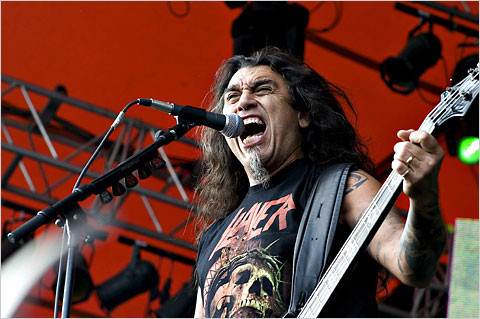Being downsized is a gut-wrenching experience, a sentiment echoed by countless individuals who’ve faced job losses. My own journey through the economic downturn felt like a cruel joke orchestrated by fate. Layoff after layoff, each new job vanishing as quickly as it appeared, mirroring the tanking economy with uncanny precision. The absurdity was palpable, but laughter was the furthest thing from my mind.
As a musician and writer, the conventional 9-to-5 world had been foreign territory since 1988. Survival in lean periods meant embracing odd jobs – painting apartments, even serenading a Korean birthday party as Elvis. Gigs were usually accessible, thanks to a diverse repertoire spanning blues, jazz, rock, and beyond. Metal, however, remained uncharted waters. Until the economic rug was pulled out from under me. Accustomed to the unpredictable freelance life, I’d thrived on creative living, exploring the world from India to Bali, fueled by adventure and stories. The steady paycheck of a newspaper columnist, acquired in 2006, was a welcome shift.
Freelance in title only, the columnist role offered unexpected perks, honing my writing prowess and multiplying my income fourfold. I believed I had finally “arrived,” six years into my writing and music career. Financial prudence became a newfound practice – a Roth I.R.A., savings accounts, and even small acts of generosity towards those less fortunate. Life was good. Then, in September 2008, the hammer fell. “Company hemorrhaging money,” my supervisor stated, “We can’t afford you anymore.” Fifty colleagues shared the same fate. Two weeks later, I packed my desk, a letter of reference a meager consolation prize. “At least it wasn’t incompetence,” I muttered, clinging to the silver lining. Savings, exceeding six months’ salary, offered a fragile buffer.
Yet, the shock was seismic. The abrupt end to a vibrant chapter felt akin to a death – eerily reminiscent of my father’s sudden passing two years prior. Disbelief, panic, grief, and the urgent need for action resurfaced. Confiding only in family, I navigated the initial aftermath in silence.
Fortuitously, another writing opportunity emerged within weeks, promising less work for better pay. “Hitting back,” I thought, a flicker of optimism in the gloom.
This victory was short-lived. The new company folded within a month, adding to the growing list of casualties. Winter descended, mirroring the chilling depletion of my bank account as former magazine clients vanished. Each month brought a fresh wave of financial anxiety.
Resilience became my battle cry. Five months of Indian ashram meditation weren’t for naught. I fought back – talking, writing, baking, yelling, laughing, networking, relentlessly pursuing any paying work.
Winter, however, remained my nemesis. Regardless of life’s turmoil, sunshine and warmth usually held the promise of endless possibilities. But the frigid grip of January, February, and March 2009 brought pre-dawn nausea. Fear, doubt, self-pity coalesced into a suffocating ball of frustration and anger.
Therapy, thankfully covered by my wife’s insurance, became a weekly ritual. In a moment of frustrated catharsis, I tore a rotator cuff wielding a bat against a therapy cube. Physical healing outpaced the mental and emotional stalemate. After two months, therapy felt futile. Work, paying work, was the only therapy I craved. Without it, words felt hollow. The situation morphed into a personal affront, a betrayal by unseen forces – God, Zeus, or whoever governed the uncontrollable.
One freezing March day, Emerson, Lake and Palmer’s rendition of Alberto Ginastera’s “Toccata” pierced through the noise on my iPod. A song unheard since teenage years, “Toccata” resonated with an unprecedented force, particularly its intense, frenetic, pounding finale.
Intense. Frenetic. Pounding. An email to a drummer friend posed a question: “What is, in your opinion, the absolute heaviest, banging-est, most insane, loudest, stupidest music of all time?”
 Tom Araya
Tom Araya
Tom Araya of Slayer at Roskilde Festival: Reigning in Blood with Sound.
“Great question,” he responded. “Slayer’s 1986 classic ‘Reign in Blood.’ Greatest album ever made. 666.” “Reign in Blood” was downloaded, saved for a moment deserving of full immersion. The first track: “Angel of Death.”
A sonic torrent of brutal, obscene, blasphemous noise engulfed me, a cannon blast shattering the walls of depression, propelling me directly into the fury simmering within. For three weeks, all other music faded into silence. “Piece by Piece” lulled me to sleep, “Angel of Death” jolted me awake. Every spare moment was consumed by “Post Mortem,” “Epidemic,” “Jesus Saves,” and especially “Raining Blood.” Every other genre felt trivial, weak, irrelevant. Lyrics became secondary, almost an unwelcome distraction. Incomprehensibility was preferable; screams were the only language that resonated.
Thirty days of Slayer immersion led to a deluge of Death Metal – 171 tracks of Pantera, Anthrax, Venom, Cannibal Corpse, Devil Driver. iTunes previews were judged harshly: no “EXPLICIT” label, insufficient tempo, instant rejection.
Something profound was happening, transcending mind and emotion. Music, for the first time, physically impacted me, shaking my core. Death Metal channeled me out of my head and into my limbs. It fueled impulsive steering wheel drumming, faster, longer runs in the biting cold, heavier weights, fiercer gym sessions, and an amplified intensity in every facet of life.
It ignited a defiance against perceived injustice, an embrace of the “inner demon” long suppressed by societal expectations of smiles, niceness, and positivity. Death Metal offered no smiles, no niceties, no bright side. Venturing into fear and anger through music proved cathartic, not destructive. It armed me to confront each day, to relentlessly jab back at depression, rage, and the “low-down, no-good, rotten son of a bitch,” Unemployment. Eventually, the S.O.B. yielded.
Spring arrived, bringing licensing deals for completed albums. The tide began to turn – a job here, a job there. New checks replaced hemorrhaging savings. A Paris travel writing assignment materialized in July. On my first Parisian dawn, beneath the Eiffel Tower, “Angel of Death” blasted in my ears, visualizing phantom Nazi tanks – a nightmare that didn’t last, unlike my own. Weeks later, a year-long media organization contract solidified the recovery.
Zeus hadn’t abandoned me, I finally understood. He’d simply handed me off to the devil for a season. And in that unexpected Dance With The Devil, I found an unlikely path back to the light.
Josh Max: Author of “Confessions of an Ex-Seeker,” navigating life through words and music.
Josh Max, a Manhattan-based writer, performer, and songwriter, is the author of the memoir “Confessions of an Ex-Seeker.” His online presence can be found at JoshMax.com.


